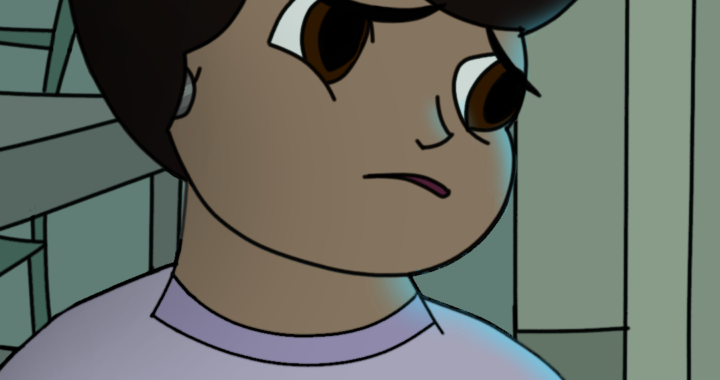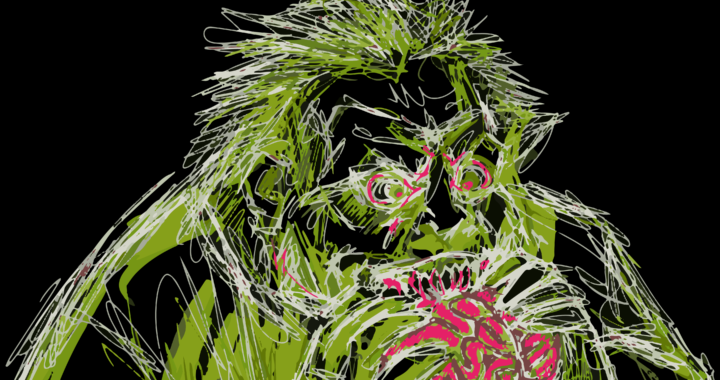Breaking the Silence

Hi there! Welcome to IIIT-H! Congratulations on your journey so far. Our article is going to primarily focus on mental health because we realize that it might be tough during your initial period here. We will have a mini guide to navigate this emotional rollercoaster, an interview with our college’s mental health team’s head, Dr. Priyanka, which will also detail on the facilities available on campus to help the students. We also have a section about the mental health group on campus and its activity during Felicity where they drew the mental health wall.
Guide to Navigating your first few weeks here:
We get it. We all went through that initial period of beginning our college life where we experienced a rush of emotions: excitement of beginning a new phase in our lives, but at the same time feeling anxious to leave the comfort of our home, family, and friends.
For a more detailed guide to socializing in such a confusing and troubling period, I’d suggest looking into this helpful article: https://pingiiit.org/2021/12/guide-to-socialising/ as I did too before joining college.
Going beyond that article, I would suggest the following:
Hobbies: Do you like Anime? You will find people who are die-hard anime fans here. K-dramas? You’ve got that too. Sports? There are hundreds of sports enthusiasts in college. The point being, if you are fond of something, do not hesitate to talk about it because only by talking to people about your interests and hobbies can you meet more people interested in the same things as you are. Although the busy schedule and rigorous academics will most definitely limit the time you spend on what you love, you must keep in touch with some of your hobbies because that greatly helps your mental health. Joining clubs on campus will help with this.
Don’t forget to enjoy: Please do not be stuck on thoughts like “how should I change myself to be cooler in college” or “how should I be in this situation or that.” There is no need to change yourself because you are perfect the way you are. Be yourself and enjoy your college life. It will be difficult at times, but you will always find people around you who will accept you the way you are.
Don’t neglect your well-being: This applies to both your physical and mental health. Don’t exert yourself too much, but don’t laze around all the time either. It is important to find a balance, and even more so in your first few weeks here. Be aware of the mental health facilities available on campus and do not hesitate to reach out to the mental health group or the counselors on campus in case you feel the need to. The upcoming parts of our article will focus on these details and how to identify when you are in need of help from mental health professionals.
Homesickness: The first few months will be thrilling, but you might miss your friends and family a lot. There is no shame in missing your loved ones. Even if you are not feeling lonely because of all the new friends that you are going to make, even if you are extremely busy due to your schedule, make sure to call your family and friends. This will surely help your mental health.
MENTAL HEALTH WALL
By now, I’m certain you’ve come across the wall paintings on our campus. If you haven’t, I encourage you to take a moment and explore them. Have you ever wondered about the meaning behind the artwork near the Kadamb mess? The one which at first glance, may appear as a combination of black and white hues interwoven with vibrant sections resembling knitting wool. Surprisingly, many passersby have had similar thoughts. The painting, made by the mental health team and a few other volunteers, is, in fact, a representation of the human brain—a powerful symbol for mental health. It portrays two distinct states of the mind. One side depicts the vulnerability and weakening of an individual when they are not mentally healthy, while the other side represents a person who is mentally fit and thriving.
The aim of this wall painting is to serve as a catalyst for spreading awareness and understanding about mental health. In a world that often expects us to hide our struggles and put on a brave face, this artwork encourages individuals to embrace their vulnerability and acknowledge their mental well-being.
The painting serves as a visual representation that seeks to dismantle the stigma surrounding mental health. It emphasizes that seeking help is not a sign of weakness but rather a courageous step towards healing and personal growth. It also depicts that our college encourages open conversations, empathy, and the recognition that seeking help at the right time is a positive act. The upcoming years might be tough but this wall painting is to remind you that there are people around you who are always ready to help you.
INTERVIEW: Dr. Priyanka
We talked to Dr. Priyanka who is the head of our college’s mental health team. She emphasized the importance for students to balance their physical and mental well-being alongside their academic pursuits. “As a student,” she expressed, “it’s crucial to recognize that both aspects are interconnected and must be given equal attention. Your overall health plays a significant role in your academic success and personal growth.”
Addressing the challenges that many students face, especially during their first year, she highlighted the sudden changes in environment and the demanding schedules they experience. She empathized that adjusting to college life can be overwhelming. However she believes that each individual has the power to take charge of their day and make the most out of it.
According to Dr. Priyanka, it is important to recognise the difference between having a bad day as opposed to chronic depression, extreme stress or other forms of serious mental health issues. She gives the example of physical pain. Having a headache for a day or two can be treated by home remedies but if it persists, it may signify something much more serious, and thus requires medical treatment. If we treat physical health in this manner, then why not mental health?
Dr. Priyanka stressed the importance of self-awareness when it comes to recognizing potential signs of mental health issues. It is important to be on the lookout for symptoms such as fatigue, irritation, irregular sleep patterns, fluctuations in your appetite and loss of motivation. If you notice that these signs are more prominent and persist for longer durations, do seek help.
She expressed her concern about the stigma surrounding mental health that still prevails in society, which many a times is also due to medical therapy. “It’s disheartening that mental health isn’t given the same priority as physical health,” Dr. Priyanka lamented. “Mental health is just as essential, and we must work to change the narrative surrounding it. Seeking help and treatment for mental health should be normalized, just like we do for any other illness.” She also stressed that a patient shouldn’t be afraid of using the prescribed medication for their issues as over the years, she has noticed that people tend to treat mental health medication differently.
Overall, Dr. Priyanka’s insights shed light on the significance of fostering a supportive environment on campus, where students feel comfortable reaching out for help when needed. “Remember,” she emphasized, “your well-being matters, and there’s no shame in seeking support from your college mental health team or anyone around you. Together, we can break the barriers and promote a culture of mental wellness for everyone.”
The campus mental health team, led by Dr. Priyanka, is dedicated to providing unwavering support to all students and individuals on campus. No matter what you’re going through, you can count on the presence of the mental health counselor, Dr. Tanushree Mustafi, and other faculty members who are equally committed to your well-being. Also, you don’t need to worry about your anonymity and confidentiality if you consult them.
INTERVIEW: Students
To gain a broader insight on how the people on campus feel about mental health in general, we took several street interviews and talked with students across batches to see how they felt about mental health and approaching counselors. Please note that all these interviews were anonymous.
There is no general perception of mental health in IIIT. Some people strongly advise visiting professionals when one is depressed. However, another popular opinion is that thinking excessively about your own mental health can lead to a nocebo effect wherein someone who is worried might self-diagnose themselves with some more serious mental health conditions and this could be counterproductive. We feel that this is true and it is extremely important to be aware of the symptoms associated with these problems.
It is however the consensus that there should be an increased social awareness about mental health and the societal stigma surrounding it should be reduced. Another question that we asked was how to deal with stress and anxiety of studies. Here is what the students of our college are doing:
Going to the gym and Walking: Exercising is proven to help reduce your stress. Fortunately for us, our college has a gym to sweat out your stress. Many students swear by walking as a method of dealing with the anxiety associated with all their assignments.
Journaling: Writing in detail about how you feel and describing your emotions is an excellent method to relieve your stress and also helps to keep track of your mental health over a long term period. This way it becomes clear how your mental health is progressing and you can judge whether you need professional help.
Overall, these interviews revealed a rich tapestry of perspectives on mental health and coping mechanisms. It underscored the importance of striking a balance between awareness and potential adverse effects while encouraging a supportive environment where students can explore diverse ways of managing their mental well-being.
Our message to all is simple. It’s okay to keep your emotions private, but not to suffer alone. Understand the difference between normal emotions and persistent issues like depression. We all experience a wide range of emotions, and seeking help for our mental well-being is a sign of strength and self-care. Let’s foster a compassionate community that encourages open conversations about mental health. Together, we can lead healthier and happier lives.
Editor: Arghya Roy

 Cleaning up the Mess?
Cleaning up the Mess?  The Mess-y Situation
The Mess-y Situation  Qu’ils mangent de la grenouille! (Let Them Eat Frogs!)
Qu’ils mangent de la grenouille! (Let Them Eat Frogs!)  Tale of Two Cheenties
Tale of Two Cheenties  Peace of mind.
Peace of mind.  Boats and Valorant
Boats and Valorant